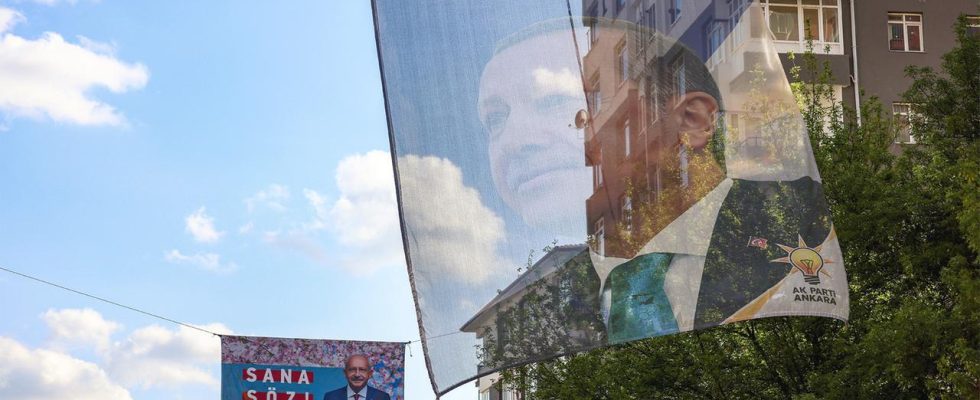On May 28, a run-off election is to decide who will be the new president in Turkey. Before the election, the EU is now calling for equal opportunities. OSCE election observer Link said the government must not be favored again in the media.
After the parliamentary and presidential elections in Turkey last Sunday, the EU called for fairer voting modalities for the future. Foreign policy chief Josep Borrell and enlargement commissioner Oliver Varhelyi said in Brussels that the EU attaches the greatest importance to transparent, accessible and credible elections under equal conditions.
The representatives of the EU Commission referred to the provisional results of the election observation missions of the Organization for Security and Co-operation in Europe (OSCE) and the Council of Europe. Borrell and Varhelyi called on the Turkish authorities to remedy the deficiencies identified.
OSCE: Genuine pluralism prevented
Since neither incumbent President Recep Tayyip Erdogan nor his challenger Kemal Kilicdaroglu were able to secure at least 50 percent of the votes on Sunday, a runoff election on May 28 must decide who will rule as President in Ankara for the next five years.
The coordinator of the OSCE and Council of Europe election observation missions, Michael Link, has already called for greater equality of opportunity. The mistake should not be repeated that the government side is clearly preferred in the media, he told the “Tagesspiegel”. Opposition candidate Kilicdaroglu had great problems appearing in the media. “If he succeeded, it was mostly negative.”
Regarding the first round of voting, Link said there had been irregularities, not so much on the day of the election itself, but during the campaign beforehand. He criticized an influence. A “criminalization of some political forces, including the imprisonment of several opposition politicians” prevented real pluralism.
Regarding the count, he said: The “very non-transparent way in which the highest electoral authority presents the results” urgently needs to be improved. On the evening of the election, the state media primarily published results from President Erdogan’s strongholds, so that the Islamic-conservative head of state was initially well over 50 percent.
A lot depends on Ogan
It is the first time in Turkey’s history that a runoff election will be held for the presidency. In less than two weeks, the 61 million voters in Germany are again called upon to put their stamp on one of the two candidates. The 3.4 million eligible voters abroad must also go to the polls again.
There are still no official forecasts as to who has the better chances. Among other things, it will be decisive how the voters decide on third-placed Sinan Ogan from the ultra-nationalist Ata-AllianzOgan, who will not go into the runoff. It also depends on how many voters Kilicdaroglu can mobilize again.
Exile Dündar dampens hope
The Turkish journalist and opposition member Can Dündar, who lives in exile in Berlin, sees little chance for challenger Kilicdaroglu to win the election in just under two weeks. He doesn’t expect the opposition to win, “because Erdogan just missed the majority and the possible kingmaker Sinan Ogan is closer to the government than the opposition,” Dündar told the AFP news agency.
In addition, the disappointment among the voters who voted for the Social Democrat Kilicdaroglu on Sunday is so great “that it could be difficult to persuade them to go to the polls again,” said Dündar. According to a recent poll, 12 percent of voters who voted for the opposition on Sunday want to stay away from the May 28 runoff.
“The opposition made a very bad impression on election night,” Dündar told AFP. She was not present at critical moments, for example to correct the initially misleading information about the votes counted. This behavior caused a major loss of confidence among voters.

